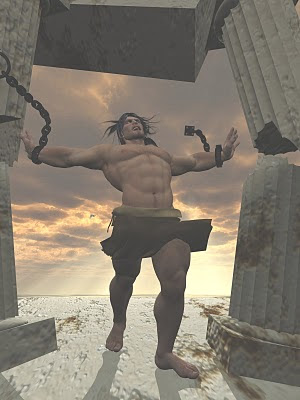

Why was life so seemingly hard and unfair during old testament times?
I’m going to talk about Genesis, chapter 38:6-29. I’ve copied and pasted it below, with my questions/comments bolded throughout the text:
Judah and Tamar
38 6 Then Judah took a wife for Er his firstborn, and her name was Tamar. 7 But Er, Judah’s firstborn, was wicked in the sight of the Lord, and the Lord killed him. Why did the Lord kill Er? What did he do? What made him so wicked? There are lots of evil people in the world today, but, if they make changes, and accept Jesus, then, they’re automatically accepted into the family of God, and they get eternal life. Does Er not have the hope of eternal life since he was born too early? If he were born during or after Jesus’s coming, I’m assuming the Lord already knew Er’s heart was hardened, and that he’d deny the gift of eternal life?
8 And Judah said to Onan, “Go in to your brother’s wife and marry her, and raise up an heir to your brother.” 9 But Onan knew that the heir would not be his; and it came to pass, when he went in to his brother’s wife, that he emitted on the ground, lest he should give an heir to his brother. 10 And the thing which he did displeased the Lord; therefore He killed him also.
Doing this, during old testament times, would get you killed by the Lord? I’m not saying that it’s not wrong, but, I’m sure there are people out there today who do this, but, they are not struck down by God after doing this act. I’m assuming that they ask for forgiveness for doing this? I don’t usually delve into the realm of sexual topics on this blog, but, what Onan did is similar to birth control – does that mean it’s wrong to do this now? Any form of BC is wrong? Or, was the law so sacred back then, that, people had to adhere to it, exactly, or they’d be put to death by the Lord? Had Onan missed his chance for eternal life since Jesus had not yet come to earth? Or, was he disobeying the Lord’s command to produce an heir? Judah wanted Onan to produce an heir for his brother – was having an heir (during old testament times) so sacred that Onan’s disobedience cost him his life?
11 Then Judah said to Tamar his daughter-in-law, “Remain a widow in your father’s house till my son Shelah is grown.” For he said, “Lest he also die like his brothers.” And Tamar went and dwelt in her father’s house.
12 Now in the process of time the daughter of Shua, Judah’s wife, died; and Judah was comforted, and went up to his sheepshearers at Timnah, he and his friend Hirah the Adullamite. 13 And it was told Tamar, saying, “Look, your father-in-law is going up to Timnah to shear his sheep.” 14 So she took off her widow’s garments, covered herself with a veil and wrapped herself, and sat in an open place which was on the way to Timnah; for she saw that Shelah was grown, and she was not given to him as a wife.
It was okay for Judah to break his promise to Tamar, and not give Shelah to her as a husband? This kind of sin was not as bad as Omar’s and Er’s? The Lord did not kill Judah for doing this? 15 When Judah saw her, he thought she was a harlot, because she had covered her face. 16 Then he turned to her by the way, and said, “Please let me come in to you”; for he did not know that she was his daughter-in-law.
Does the Lord not frown upon Judah seemingly sleeping with a harlot? The Lord knows it’s Tamar, but, Judah’s actions were not punished by death, unlike his son, Omar. Why? Is it because the Lord chose to forgive Judah since the Lord wanted Tamar to have an heir? Was this all a part of God’s will?
So she said, “What will you give me, that you may come in to me?”
17 And he said, “I will send a young goat from the flock.”
So she said, “Will you give me a pledge till you send it?”
18 Then he said, “What pledge shall I give you?”
So she said, “Your signet and cord, and your staff that is in your hand.” Then he gave them to her, and went in to her, and she conceived by him. 19 So she arose and went away, and laid aside her veil and put on the garments of her widowhood.
So, was this the way the Lord wanted Tamar to produce an heir, through deceit, trickery and dishonesty?
20 And Judah sent the young goat by the hand of his friend the Adullamite, to receive his pledge from the woman’s hand, but he did not find her. 21 Then he asked the men of that place, saying, “Where is the harlot who was openly by the roadside?”
And they said, “There was no harlot in this place.”
22 So he returned to Judah and said, “I cannot find her. Also, the men of the place said there was no harlot in this place.”
23 Then Judah said, “Let her take them for herself, lest we be shamed; for I sent this young goat and you have not found her.”
24 And it came to pass, about three months after, that Judah was told, saying, “Tamar your daughter-in-law has played the harlot; furthermore she is with child by harlotry.”
So Judah said, “Bring her out and let her be burned!”
What?? Judah has the power to act as God, burning someone for their sins, killing them – yet, he seemingly slept with a harlot? Seems quite unfair that Judah would have this kind of power, live this kind of life, yet want to kill others when he’s guilty of being a party to the same sin.
25 When she was brought out, she sent to her father-in-law, saying, “By the man to whom these belong, I am with child.” And she said, “Please determine whose these are—the signet and cord, and staff.”
26 So Judah acknowledged them and said, “She has been more righteous than I, because I did not give her to Shelah my son.” And he never knew her again.
He admits he’s wrong, but, I’m still deeply troubled by Judah’s attitude. The fact that he’d initially wanted to burn Tamar down for harlotry leaves a bad taste in my mouth.
27 Now it came to pass, at the time for giving birth, that behold, twins were in her womb. 28 And so it was, when she was giving birth, that the one put out his hand; and the midwife took a scarlet thread and bound it on his hand, saying, “This one came out first.” 29 Then it happened, as he drew back his hand, that his brother came out unexpectedly; and she said, “How did you break through? This breach be upon you!” Therefore his name was called Perez. 30 Afterward his brother came out who had the scarlet thread on his hand. And his name was called Zerah.
Please provide any comments or insight about this scripture!





